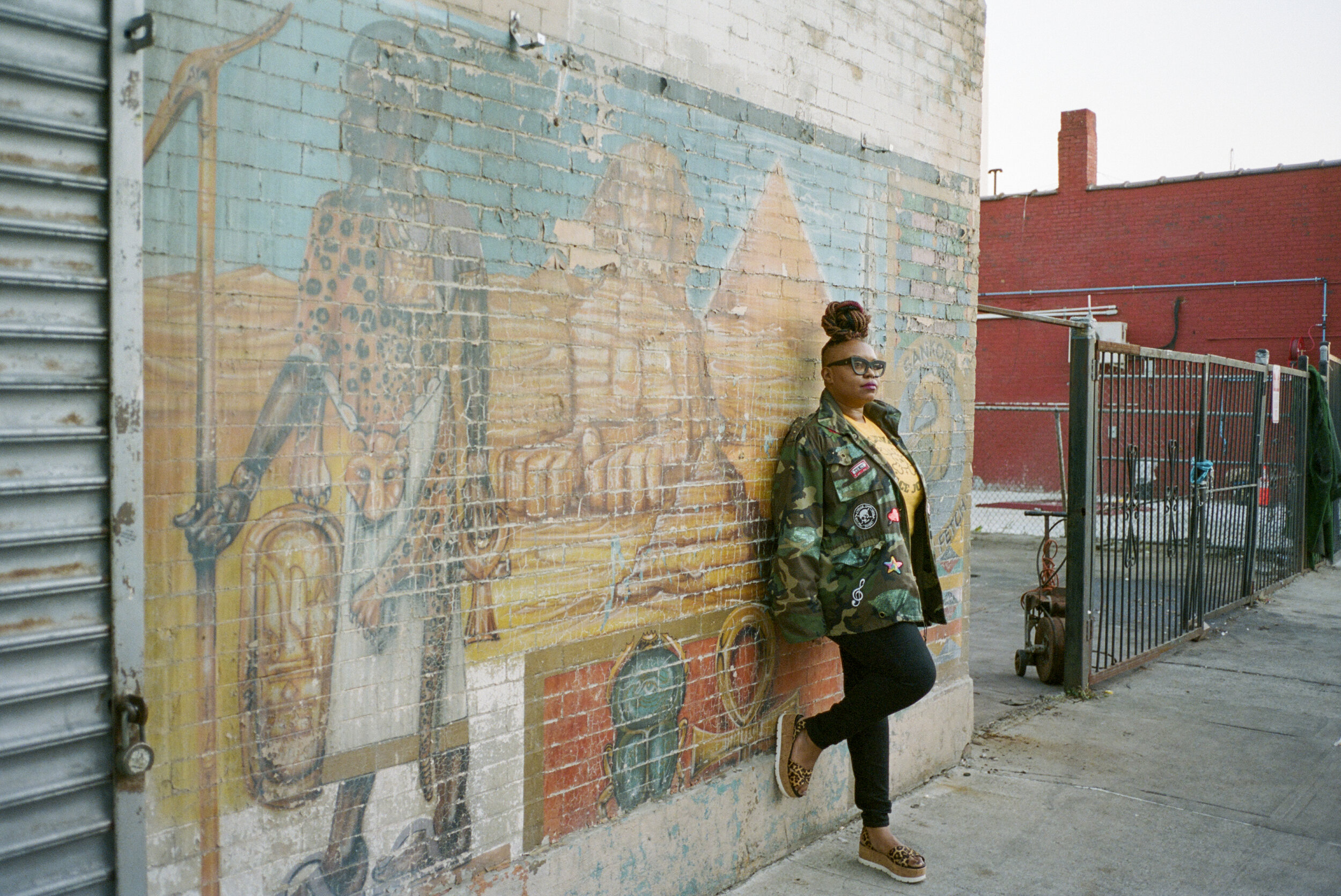Sabine Blaizin in the Now
“Haiti made me but New York raised me.” It took Sabine Blaizin a New York education in hip-hop, capoeira, poetry and nightlife to become one of the most sought-after Afro House DJ and event curator in the city. In a post-quarantine world, she has found a “rededication” to all things she does. “More intention, more purpose to live in the now.”
Photos by Neil Aline
NOUVEAU YORK: Wild times. How have you been?
SABINE BLAIZIN: I'm well thanks. Maintaining. It’s been a challenge navigating this new normal and virtual space as an artist. Checking in with family and friends has been a great help. I’ve become more inspired in the past two months to use this time to work on refreshing my label Oyasound and home cooking ... Beats and eats!
NY: You have been pretty busy these last weeks, playing in South Carolina and outdoors at the Brooklyn Museum. How is partying while social distancing?
SB: It has been reinvigorating to play again, travel, and be outdoors. I've agreed to do certain events based on their safety procedures. Thus far promoters and bookers have been very mindful and creative with their events. I was happy to offer some musical joy during this time.
“It’s been quite interesting to research and it just shows the breath and beauty of African diasporic intergenerational music.”
NY: Last time we chatted you said you were exploring the “history of Afrobeat, the genre, versus the contemporary African Afrobeats pop culture.” What did you learn?
SB: Since then, Afrobeats has grown so much from Wizkid to Beyonce’s Lion King film scores! Main difference is in the title of the genres and for it to not be confused with the other. They are each indicative of an African era and messaging in music. Afrobeat as with artists like Fela Kuti during his time had a sociopolitical message describing injustices and state of affairs in Africa. Afrobeats now is an amalgamation of African popular music. There are various iterations of the afrobeats sound from Cuba, Dominican Republic, Haiti and intermixed genres like AfroTrap, etc. It’s been debatable if the title Afrobeats is inappropriate or gives homage to its musical foreparent Afrobeat. It’s been quite interesting to research and it just shows the breath and beauty of African diasporic intergenerational music.
NY: Did the lockdown have any impact on the way you approach your musical quest?
SB: Yes definitely! I've been more focused on music production than deejaying during this time. It has also been a learning curve to do live streams and knowing the limitations of using various new platforms. It's been trial and error ... Some of which is highly frustrating and exciting at the same time!
NY: You said “Haiti made me but NY raised me.” Can you tell us a bit more about your hip hop education in the Bronx?
SB: Ah the Boogie Down! BX! Yes yes, The Point has been instrumental in my hip-hop upbringing [The Point is a non-profit organization dedicated to youth development in the South Bronx]. I thank my teachers like Bgirl Rocafella of the Soul Circle Souljahs and my former crew The Anomolies.
NY: In the mid 90’s you said you reached your “creative peak” while being “an emcee, poet, B-girl, and capoeirista” in the Village. What were the spots?
SB: Joao Grande's Capoeira Angola Center, The Palladium Nightclub, Tramps Nightclub, Club Vinyl (Shelter), Wetlands, APT ... were all instrumental spots I've frequented to spit my rhymes and dance until the wee hours of the morning! I've found my “tribe” at these spots. Between 1995 and 1999, I've made lifelong friends and developed an ear for music that made me creatively express myself in song and movement. Not knowing later that I would eventually develop into a DJ, producer and event curator.
“I’ve found more intention, more purpose to live in the now.”
NY: How did a night at The Palladium look like?
SB: The Palladium was a magical place for music enthusiasts of R&B, Hip-Hop and House. It was an oasis for avid club-goers, breakers and house heads alike. It was a great era of clubbing where there were multi-genre, all-in-one venues with respect to both popular and underground dance culture.
NY: It has been a weird and powerful summer 2020 in NYC with two opposite forces, the pandemic, which kept people at home, and the demonstrations against police brutality, which brought them out. What did you learn from that summer?
SB: Oooh, it made me realize what is most important: my mental, physical, and spiritual health. It made me appreciate the musical craft and my community more. I’ve found a rededication to all things I do. More intention, more purpose to live in the now.
Mix selection by Sabine Blaizin:
Guggenheim Art After Dark
Inside The Dance
Check Sabine’s label Oyasound.
Her next release called “Mind Body Soul”
will be out in January 2021






